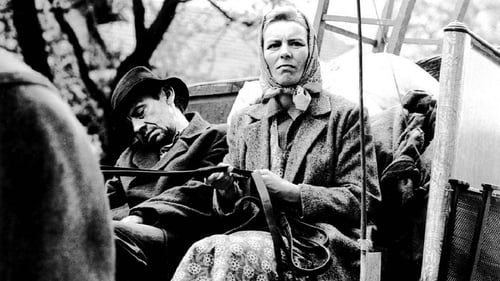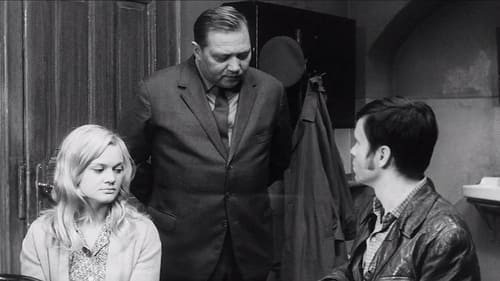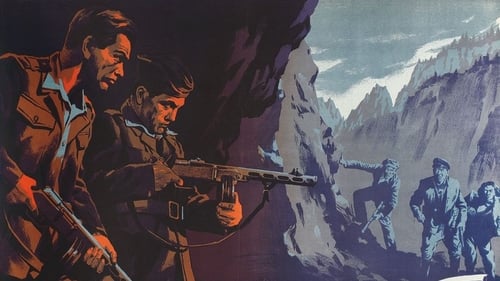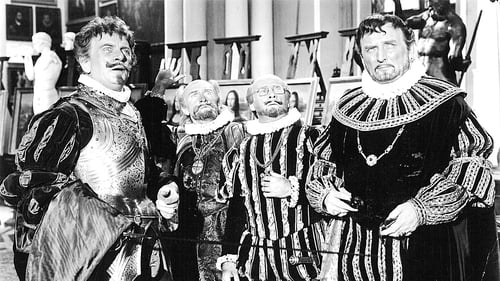
Matylda (Jaroslava Ticha), que vive na zona rural Checa, está a tentar organizar planos de enterro de seu marido a perecer, Jan (Ludvik Kroner). Enquanto Matylda espera ter um funeral para Janna pequena cidade onde eles viviam, há complicações. Anos antes, Jan falou contra o governo comunista e, consequentemente, foi expulso da cidade. Quando Matylda não consegue convencer um político local para permitir a cerimónia, ela usa o funeral de seu marido como uma demonstração pública de dissidência.

Major Kalas from the Prague criminal intelligence service has been sent to a small town of Dubá in North Bohemia to help with the investigation of the puzzling death of a child. A gypsy boy has been killed three weeks ago and his body found under a rock. As the investigation continues, another dead boy is found. The boy has bled to death after someone cut his artery with a handsaw. Both deaths are obviously the work of a murderer - a perverted pedophile, sadist who gets sexual satisfaction from the sight of a young boy's blood.


muž s deštníkem
It is the 1930s. Physician Bartos devotedly attends poor patients in the city suburbs, at the same time researching the possibilities of regeneration of human tissues after transplantation. His former colleague Rosen, now working as an assistant at the private clinic of surgeon Kirchenbruch, considers the research a mere utopia. The disappointed Bartos, trying to verify his theories, therefore accepts the outrageous proposal of Marion, owner of a brothel - to surgically replace the face of her lover, the wanted thief Cutter, with the face of murdered Father Hopsasa. Bartos is well paid but his successful operation remains a secret.

Proprietor

(segment "Glorie")
Czech comedy fantasy directed by Jiri Krejcik et al.

Uncle Dracula

agricultural worker

Prague citizen
The second part of the revolutionary Hussite trilogy takes place in the years 1419-1420.

Venice Film Festival 1955

německý venkovan
Jan Hus is a 1954 Czechoslovak film directed by Otakar Vávra. It is the first part of the "Hussite Revolutionary Trilogy", one of the most famous works of the Czechoslovak director, completed with Jan Žižka (1955) and Proti všem (Against All Odds, 1957).

The happenings in a shoe factory serve as a not very thinly veiled examination of the pros and cons of both socialism and democracy.

Commentary (voice)

"The Rally" is based on a communist writer Vaclav Řezáč's well-written novel of the same name

Man at Meeting
The movie describes proletarian life in the Czech Lands after World War I.

laborer
Film shows the struggle of the Czechoslovak armed forces against groups of Ukrainian Insurgent Army (UPA) under command Burlak, who tried to pass through the territory of Slovakia.

The Emperor's mismanagement of his country is provoking some in his court to plot to overthrow him. He feels successful, at least, when he discovers the legendary Golem, which he believes can protect him and even cure his imaginary illnesses but, when he disappears while on a bender, his kindly baker, who looks just like him, is mistaken for him, and begins to put things in order. However, the conspirators, not to be outdone, determine to bring the Golem back to life to do their bidding.

German worker Fritz
Czech drama film.

Cooperative members are harvesting crops, trying to get new water piping installed and preparing to plough away the field boundaries in autumn. Local kulak Voznica (Vladimír Repa) doesn't like any of this so he forces sexton Kodýtek (Vlasta Burian) to help him sabotage their efforts.

Muz z ratejny

Mikota, the baker

Príhoda, delegát / Schmidinger, duchovní
Year of the Revolution 1848

Cold War Spy FIlm

Czech film tells the story of a border town in World War II. Family members and friends become enemies.








